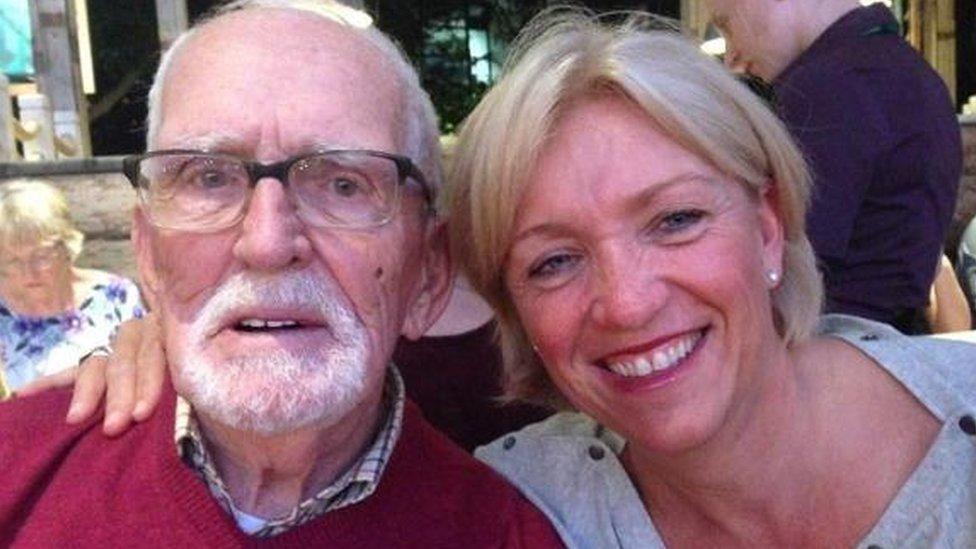Covid: MP calls for law change for dementia patients
- Published
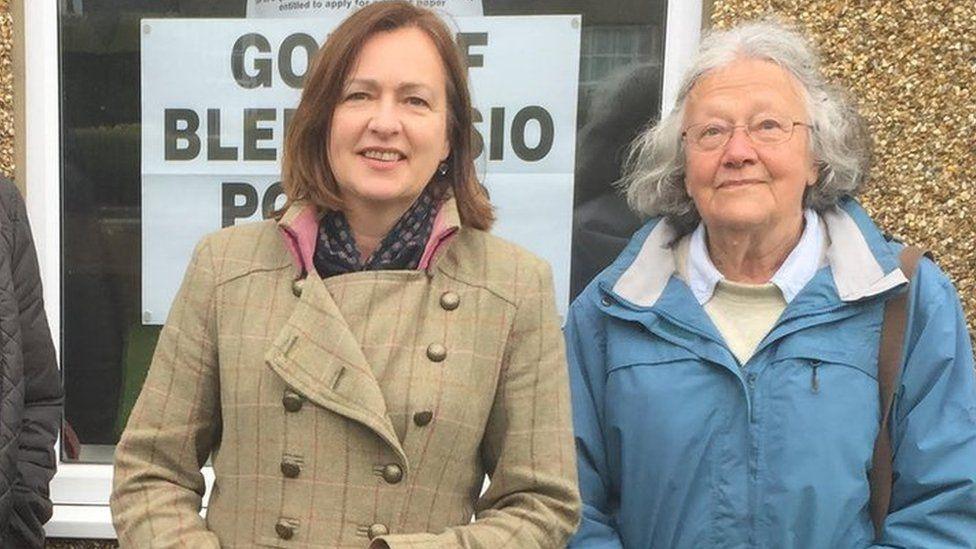
Liz Saville Roberts with her mother, Dr Nancy Saville, who has just been diagnosed with dementia
An MP is calling for a change in the law to make visits a human right for dementia patients in care homes.
Plaid Cymru's Liz Saville Roberts said she was worried she may not be able to visit her mother when she is moved from hospital to a care home.
She asked for more clarity to be given to care homes about their duties under the Human Rights and Equality Act.
The Welsh government said providers should support routine indoor visits in a risk-managed way.
A spokesman added that, in the event of a Covid outbreak at a home, residents can continue to receive indoor visits from their nominated "essential visitor".
Dr Nancy Saville, 87, had a stroke last year, has also had several falls, and was recently diagnosed with dementia.
Her daughter, the Dwyfor Meirionnydd MP, wants guidance to explicitly recognise that family members are not only visitors but care givers who are integral to dementia patients' wellbeing and happiness.
She said that people who are disabled, elderly or ill have a "right to family life", and that preventing family visits "irreversibly harms" their well being.
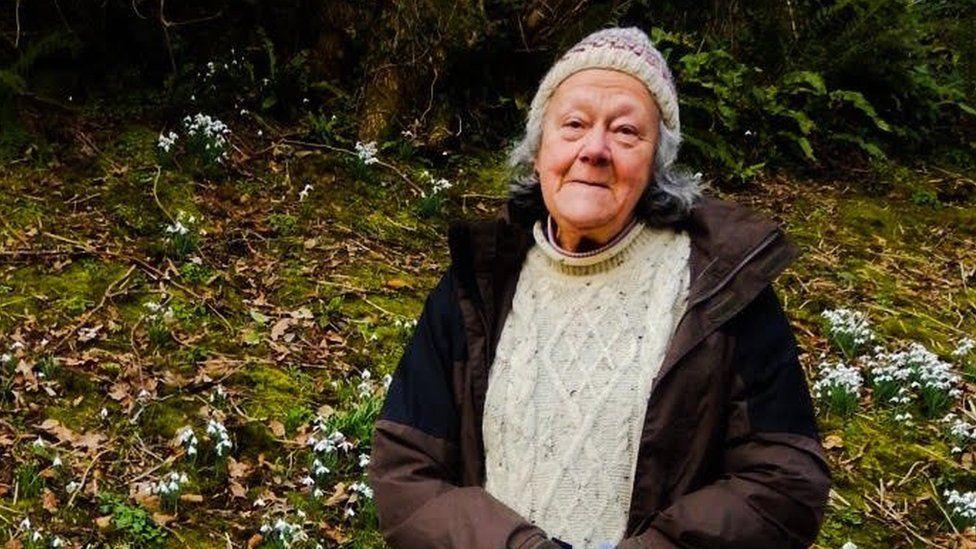
Dr Nancy Saville is likely to have to move from hospital to a nursing home
She said that despite visits being allowed by Covid rules, many of her constituents have found they were not able to see their loved ones and feared her mother will "likely be separated indefinitely when she is moved into a nursing home".
'Surely this isn't right'
"We've gone through this period of steadily losing my mother, over the last year, and here we were with Omicron and the threat we were going to lose health staff and have to shut places down, and the care homes saying we're going to have to shut our doors to visitors," said Ms Saville Roberts, who leads Plaid at Westminster.
"And I was thinking, we've had two years of Covid now, surely this isn't right, surely there is a basic human right for dementia sufferers, for people with cognitive impairment to see their families, and for the families to see their loved ones as well - and no, there isn't.
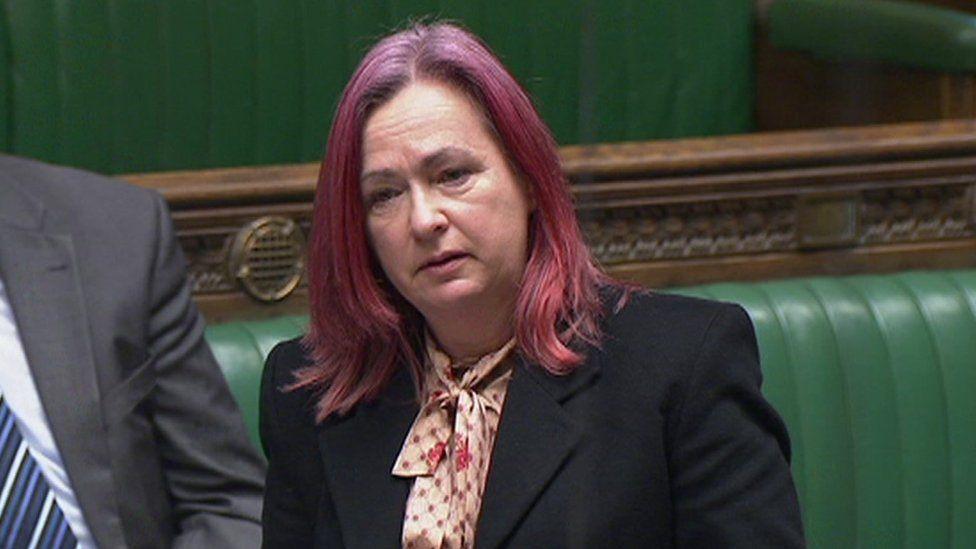
Preventing visits "irreversibly harms the welfare of disabled, elderly and sick", says Liz Saville Roberts
"To state the obvious, people like other people, we need other people, we love our family members, and if you can't see a member of your family, a loved one, somebody with dementia - probably anybody frankly - that affects you really badly.
"Someone with dementia has no human rights to see their families. Other groups have rights, but we are one of the most affected groups during the Covid era, and I think, really, we have to change that."
Ms Saville Roberts added that dementia was a condition which killed people, and isolation could mean conditions deteriorated.
Since Christmas 2020, figures from Alzheimer's Society Cymru show that 60% of people with dementia are less likely to recognise family members, with 29% finding it more difficult to eat and 35% said it was harder to walk.
A report published in the Lancet last July, external found that 54% of residents in care homes experienced worsening memory, according to reports from an online survey administered to care givers.

Brian Humphreys says it is difficult to arrange to see his sister in the care home where she lives
Brian Humphreys from Brynamman, Neath Port Talbot, said it was sad to see his younger sister, Elaine John, 72, in her condition in a care home in Ystradgynlais.
He said: "The Alzheimer's was getting worse, so we go down to see her when we can get an appointment, if I'd ring today, I may be able to get an appointment later this week, if not, probably next week.
"They're very good and there's no problem with speaking to them [staff] at all.
The Alzheimer's Society Cymru said patients' health deteriorated from not being able to see their loved ones. It said families had the right to visit a care home even if there were cases of Covid.
'Bent over backwards'
"What we're seeing is that these guidelines are quite open, and we're seeing care homes that are maybe a little over-cautious with the guidelines and are leading to a decline in people living with dementia in the home.
"I think what needs to be done is a clear commitment and more clarity to be provided about the rules around essential visitors," said Sion Jones of the society.
Mario Kreft, chair of Care Forum Wales, said: "We have followed the science-based public health guidance from the outset and the sector has collectively bent over backwards to facilitate safe visiting by loved ones because we have always recognised its importance in terms of overall wellbeing and mental health.
"There is nobody who wants to allow visiting more than the people who run and work in care homes because of the undoubted benefits that they bring and we would of course love to return to something like normality in this regard."
'Significant funding'
Mr Kreft said that when Omicron started spreading like wildfire it was unclear how severe the symptoms would be. So the sector had rightly proceeded with caution and again followed all the guidelines issued by the Welsh government to keep people safe.
If there is an outbreak in a home, tighter restrictions would obviously apply in line with the official guidance, he said.
"The other serious issue that's complicating matters is that care homes and domiciliary care companies are no longer insured for any Covid-related claims because all the insurance companies have changed their policies and this is something else that creates an unwanted impediment in terms of visiting. Care Forum Wales has been calling for an NHS-style indemnity in relation to Covid," he said.
The Welsh government said the guidelines were clear and it had provided significant levels of funding to support the adult social care sector throughout the pandemic.
It said it was working with other UK governments to find solutions to the wider issues facing the sector, including rising premiums and difficulty securing insurance for Covid.

WONDERS OF THE CELTIC DEEP: Encounter mythical coasts and extraordinary creatures
STORIES FROM WALES : Documentaries for curious minds

- Published10 December 2021
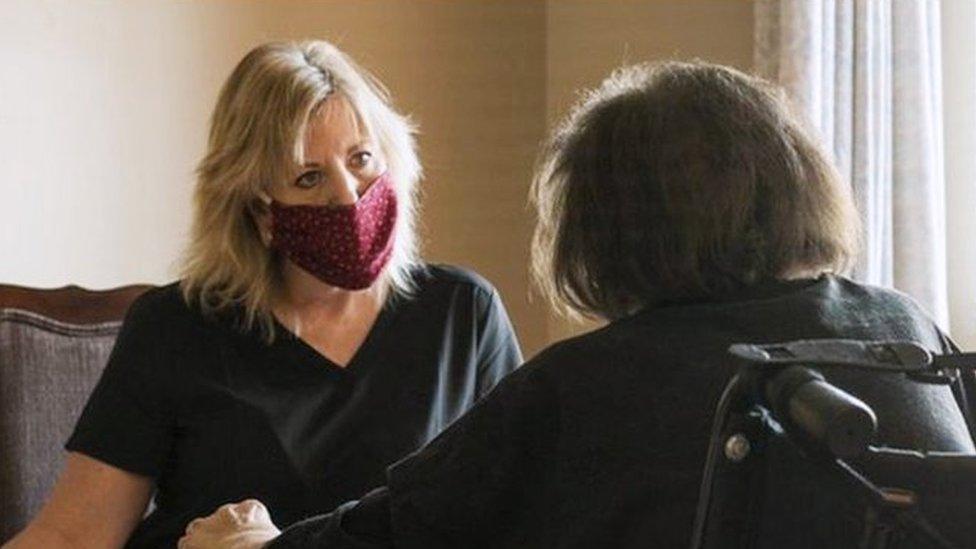
- Published16 March 2021
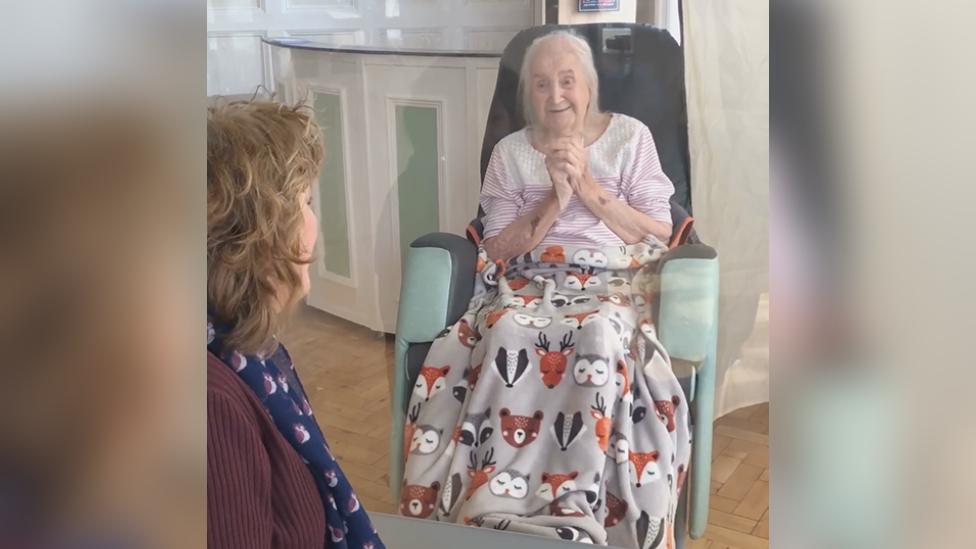
- Published5 March 2021
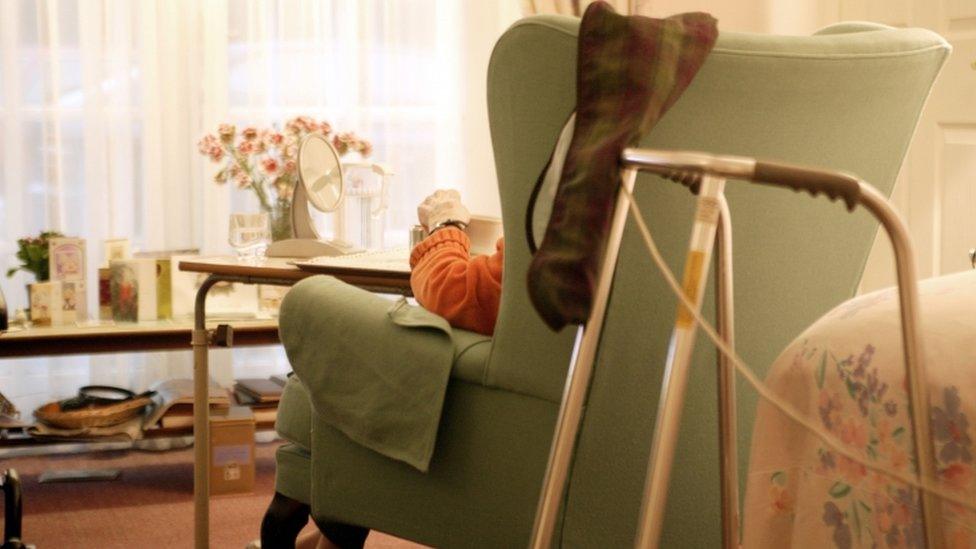
- Published24 February 2021
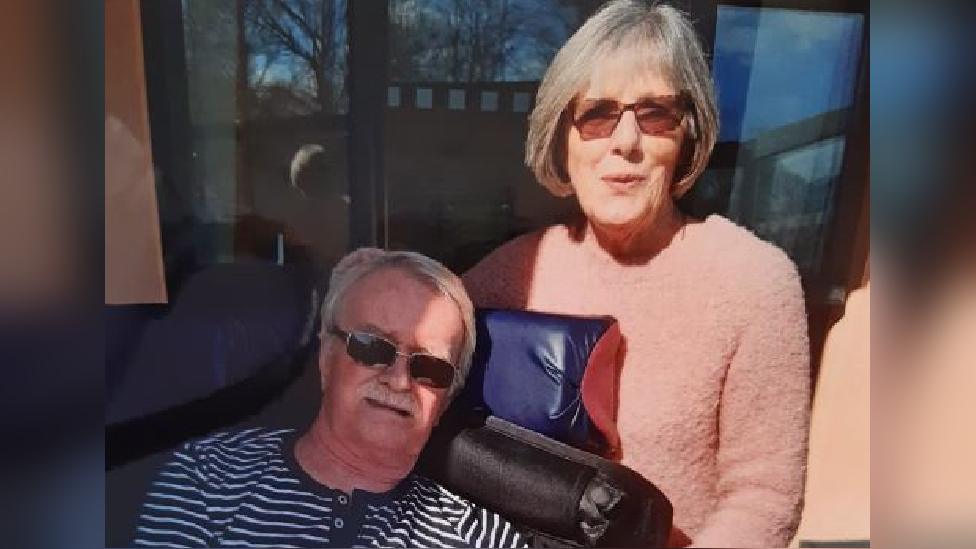
- Published18 November 2020
